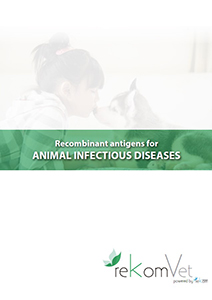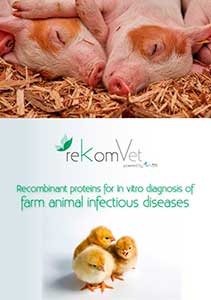Neosporosis
Neosporosis is an infectious disease caused by the parasite Neospora caninum. It affects warm-blooded mammals, mainly ruminants, and dogs, especially puppies. Currently, the disease has not been described in humans. The dog, both domestic and wild, is the main host of the parasite. The transmission can occur either by ingesting food and water contaminated by feces of infected animals, or by transplacental route, being this infection the most serious. The symptoms are similar to those of toxoplasmosis, except that in neosporosis there are more muscular and neurological signs. In dogs the most common are neurological and muscular disorders. In bobids it causes abortions and neonatal mortality. In more severe cases, it can lead to myocarditis, even death. The treatment used to treat this disease are antibiotics and antiprotozoals, and as a prevention it is recommended to avoid environmental contamination and perform serological tests on all animals. The diagnosis of Neosporosis is based mainly on the detection of antibodies and PCR.
Neosporosis is an infectious disease that has a worldwide distribution. This disease is the main cause of abortion in cattle, but neosporosis is not the only reason why it is a major problem in the dairy and beef industries. The economic losses are considerable, since it also affects reproductive problems, embryonic and newborn deaths, resorptions and infertility, plus the cost of veterinary services and treatments. In dogs, neosporosis should be considered in the diagnosis if there are neurological signs that affect a young dog, especially if progressive paralysis of the posterior third has occurred.
The serodiagnosis of Neosporosis with tests elaborated with complete tachyzoites of N. caninum can give rise to false positives due to cross-reactions with Toxoplasma gondii, another protozoan closely related to N. canine. Other drawbacks associated with the use of whole tachyzoites include the need to culture the parasite in vitro and to have trained personnel interpret IFA results.
Animal infectious disease (mainly warm-blooded mammals, mainly dogs and cattle)
At Rekom Biotech, we desing and manufacture IVD reagents for diagnosis of Neosporosis. If you do not find what you are looking for, you can request our custom-made recombinant proteins/antibodies service. Do not hesitate to contact us!
How to reconsitute lyophizated vials
Recombinant antigens for diagnosis of Neosporosis


